Tribute to a Great Director by his Greatest Star Discovery
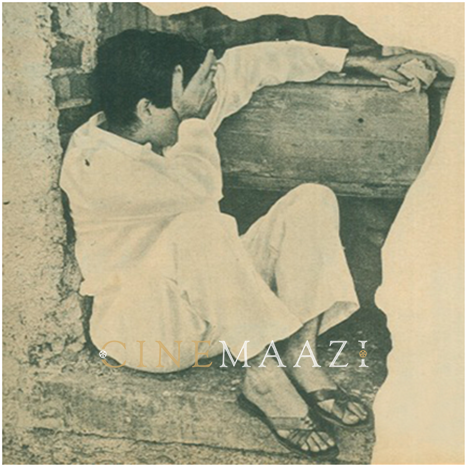
Subscribe to read full article
This section is for paid subscribers only. Our subscription is only $37/- for one full year.
You get unlimited access to all paid section and features on the website with this subscription.
Not ready for a full subscription?
You can access this article for $2, and have it saved to your account for one year.
Dilip Kumar Remembering Amiya Chakravarty
He was so mentally alert, so young, so full of life, and so refreshingly aggressive. That's the way he always was.
Those who knew him well knew that beneath the hearty, blustering, rough exterior lay a kind heart.
The occasion when we first met still lives in my mind. It was years ago, and I had come to Bombay Talkies and met Devika Rani.
I was a novice at the time and did not know Mr. Chakrabarty. Nor did I realise the significance of that first meeting with him.
Mr. Chakrabarty came in and spoke to me. He said nothing in particular. It was just casual conversation, and lasted a matter of minutes. Then he left me. Later I learned I was "in".
Mr. Chakrabarty had taken no test, relying as always on his own judgement.
When I started work, I was young. I was also very sensitive. The least harshness from anyone would have made me go out of films, and stay out for good. Mr. Chakrabarty was kind and always considerate to me. He showed a lot of understanding and care in his treatment of me. He gave the same attention to my work.
Individualistic to a fault, Mr. Chakrabarty could on occasion be obstinate and many thought him opinionated. But his was an obstinacy which those who understood him could overcome. If there was merit in their argument, he was open to conviction, but he had to be convinced.
It was not in his nature to subordinate himself. This trait in him was an advantage. It helped him to assert himself in a harsh unfeeling atmosphere and gain eventual recognition in the film industry. He was, too, a man of unchangeable and deep-seated loyalties.
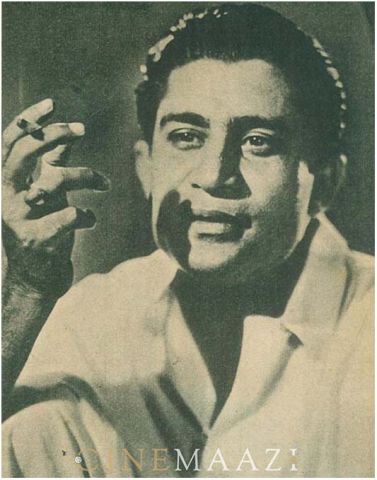
Indian film Industry of one of its most gifted film makers.
I remember we had come to the end of the shooting of "Jwar Bhata." The studio was in a rush to complete the film which was due for release. I had malaria and was running a high temperature. Mr. Chakrabarty asked me to rest in an upstairs room at the studio until I was required. I fell asleep in the darkened room.
Suddenly I awoke. It was past midnight. My eyes opened to see Mr. Chakrabarty spraying insecticide in the room, and he was doing this with the least possible sound so as not to disturb me.
If Mr. Chakrabarty faced bad times, he never complained of them. He had the ability to take success as well as hardship in his stride.
When we first worked together, out of respect, I did not smoke in his presence. When we were doing "Daag" together years later I still observed this rule. When I felt like smoking a cigarette, I would leave the stage, go outside and have a few quick puffs.
An assistant told Mr. Chakrabarty about this. The next day, when we sat down together to go through the details of a scene, he promptly offered me a cigarette. When I hesitated, he said, "Come on, come on! There's no need to stand on ceremony with me".
I am also reminded of another day. "Jwar Bhata" had been finished and we were on the floor with another film. A young and very attractive girl came on the set to watch the shooting.
Struck by her personality, I started comparing her simple, unaffected charm with the synthetic glamour of some of the leading ladies, and wound up by saying, "That's the type you must get for a heroine!"
I did not know then who the girl was. Mr. Chakrabarty did, but he didn't say a word. He merely agreed with a smile.
Six months later they were married.
It is a fitting tribute to Mr. Chakrabarty that he died in harness. He had lived that way. Work was a religion with him.
This article was published in 'Filmfare' magazine's March 29, 1957 issue, pg. 15.
The images and captions appeared are extracted from the original article.
About the Author



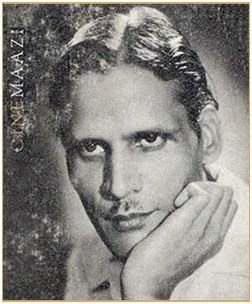
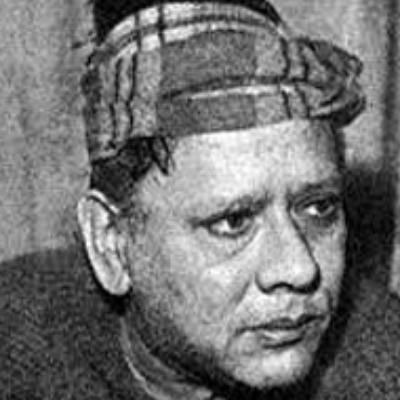
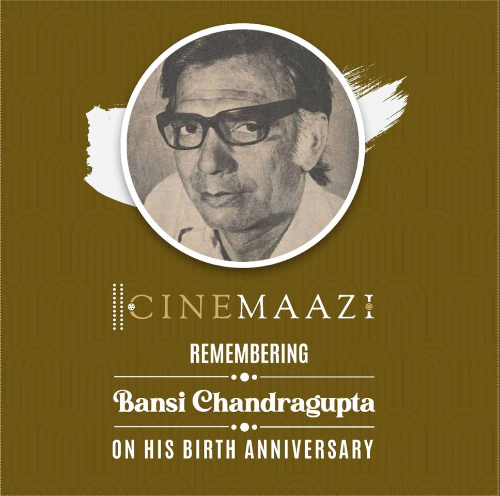

.jpg)



